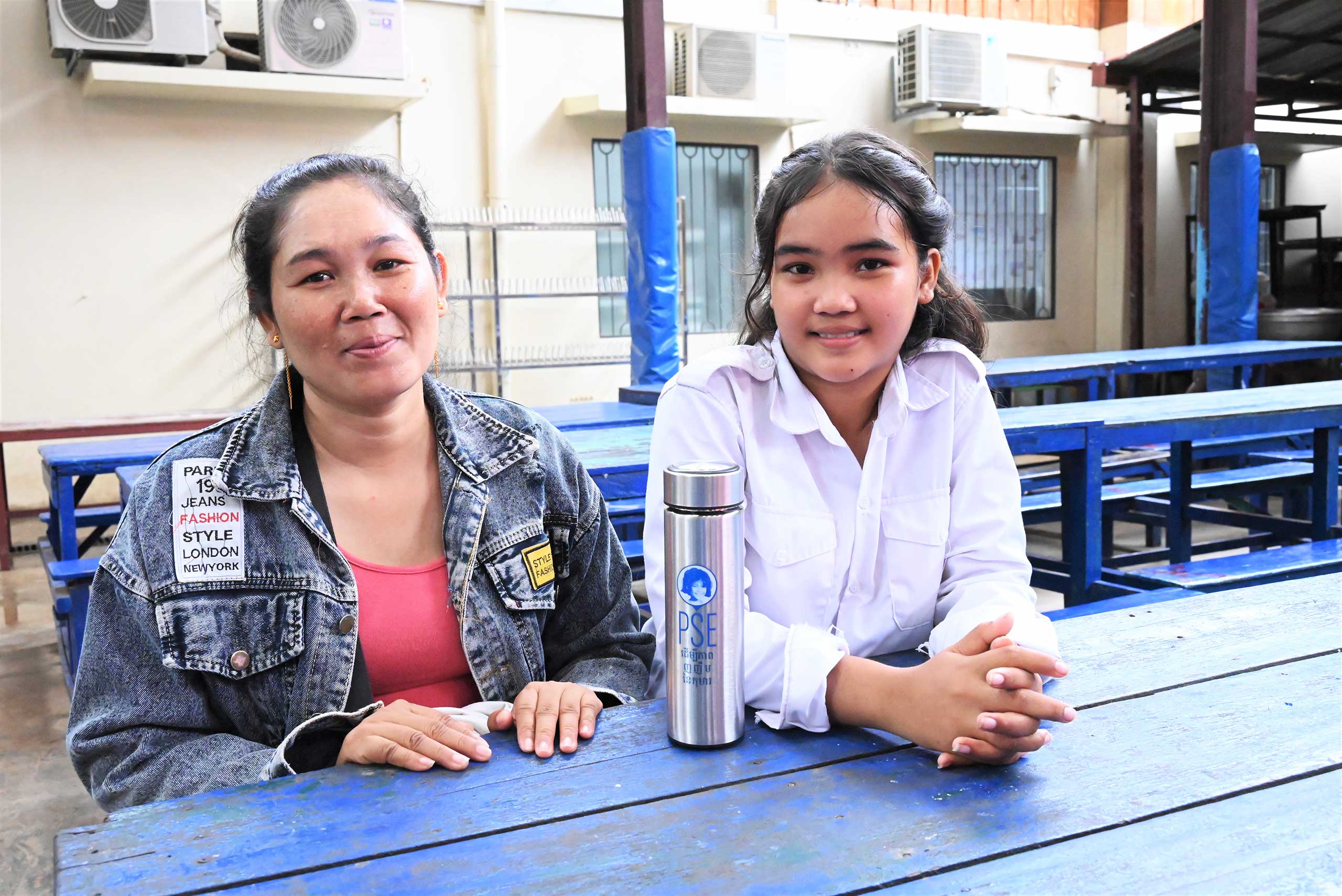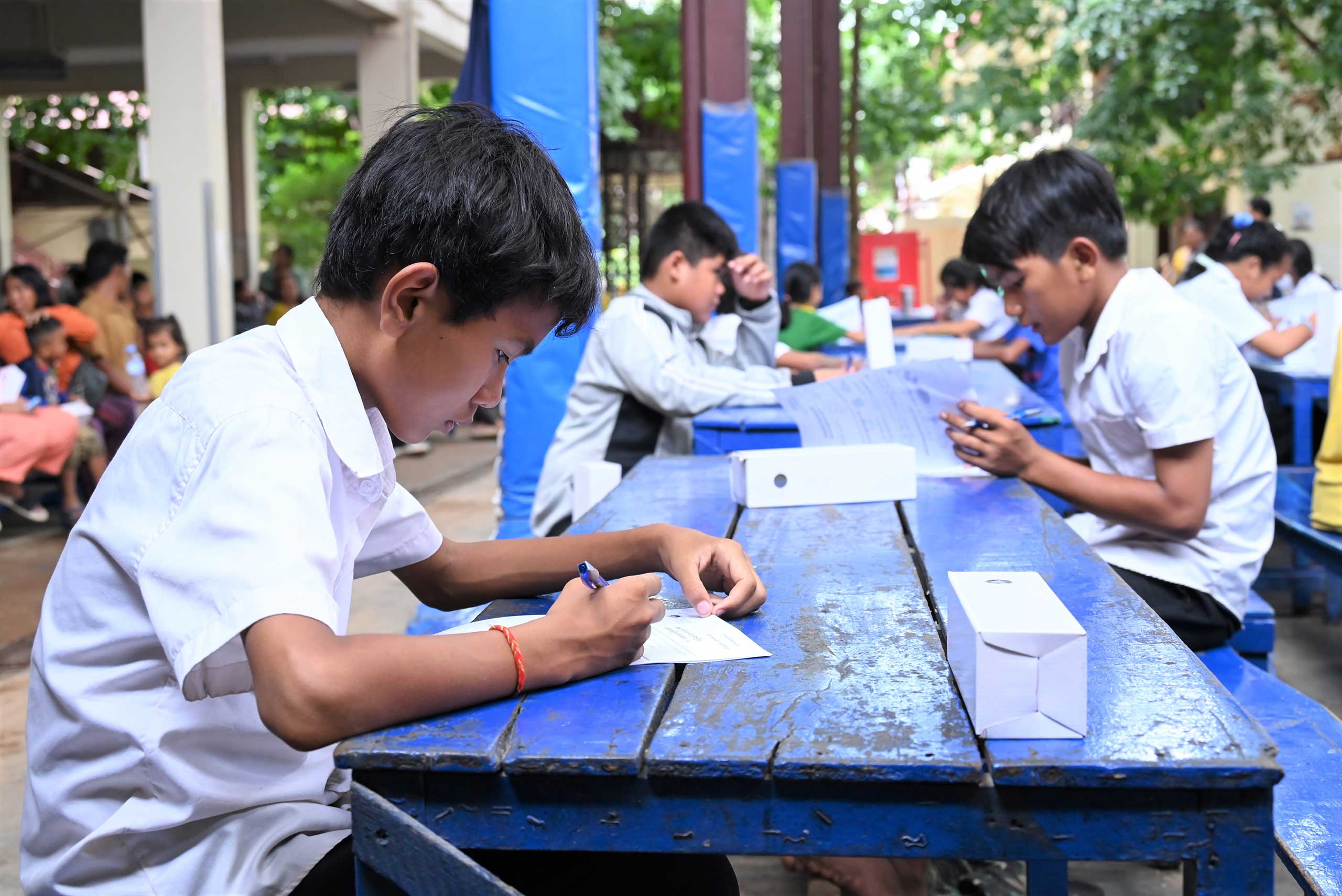
Involving the families of children supported by PSE to improve their schooling
Discover the PSE centre in Phnom Penh
Friday morning, 7am: around a hundred children enter the PSE centre, accompanied by their parents. Their steps are hesitant as they pass through the gates, but they are quickly greeted by the smiles of the educational teams. The children supported by PSE are currently attending state schools. This concerns around 3,000 of the association's beneficiaries, but many of them have never been to the PSE centre, which mainly takes in pupils with special educational needs (remedial education, disabilities, vocational training, etc.).
"It's very important for our state school pupils to come to the centre so that they realise that they belong to the PSE family. We want them to see PSE as a second home, where they will be warmly welcomed and where they can come if they have the slightest problem. During the visit, for example, we show them the medical centre and the doctors they can consult whenever they want," explains Sinoun, head of education at PSE.
Chantha, 14, confirms: "It's my first time at PSE and I'm very happy to discover the school! We had a tour of the school and I'd love to come and study here".
Creating links with families
Friday 21 July marked the launch of this initiative. This first group of 100 young people is a little unusual in that they are all considered to be at risk of dropping out of school: regularly late for lessons, absenteeism or age not suited to their school level (for example, 9-year-olds in first grade). During the visit, the focus was on the remedial education programme, so that parents would have a better understanding of this programme if their children were to benefit from it, and of the target level that could be expected.
This approach reflects PSE's priority of building links with families, particularly those who live far from the centre or have less opportunity to visit. The aim is to encourage them to take responsibility for their children's schooling.
"Before PSE, my husband and I had decided to send our daughter to work in the factory because we couldn't afford to send her to school," explains Chantha's mother, Sreymoth. "We changed our minds, and thanks to PSE, she now goes to school. Thank you for giving my daughter hope! I'm proud to be here with her today. And if her school results aren't good, I'm reassured to know that she'll be able to study at the remedial school."
At PSE, every pupil can find their place thanks to individualised support and solutions tailored to each one. Our approach: one problem = one solution!


